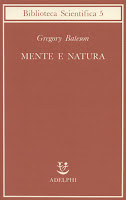La principale conseguenza della distinzione tra mappa e territorio è che non si ha conoscenza diretta del "mondo", ma solo conoscenza di una sua rappresentazione, o di rappresentazioni di rappresentazioni, ovvero l'immagine di qualche cosa che è diversa dalla cosa in sé, che - in se stessa - è inconoscibile. La percezione del mondo e la sua esperienza - che determina il comportamento - risultano mappe di mappe di un territorio che, direttamente, rimane sconosciuto e forse inconoscibile.
Nel corso del tempo lo studio del modellamento umano e delle sue implicazioni è stato portato avanti in diversi ambiti, dalla filosofia alla neurofisiologia. Due esempi significativi in tempi e contesti molto diversi sono:

 |
| Il processo del modellamento umano.La prima mappa è tra mondo esterno e la sua percezione tramite gli organi sensoriali. La seconda tra mondo percepito e mondo dell'esperienza tramite i sistemi rappresentazionali associati agli organi di percezione. Il mondo dell'esperienza determina il comportamento e le azioni e viene espresso tramite il linguaggio. Il feedback tra esperienza e mondo esterno è coerente con un'interpretazione costruttivista della realtà. |
- Percezione del Mondo
- Il processo del modellamento umano
modello/modellamento
la rappresentazione di qualcosa/il processo con cui si rappresenta qualcosa
Nel corso del tempo lo studio del modellamento umano e delle sue implicazioni è stato portato avanti in diversi ambiti, dalla filosofia alla neurofisiologia. Due esempi significativi in tempi e contesti molto diversi sono:

il Trattato di Hume, una delle massime espressioni dell'empirismo inglese del 700, è un classico saggio di epistemologia sul processo di modellamento umano.


Il secondo è un testo classico di psicologia cognitiva del 1960 nel quale Pribram, Galanter e Miller fornirono alcune strutture dell'interno della scatola nera per la relazione tra conoscenza/esperienza e comportamento definendo un piano come un processo che regola il comportamento dall’alto di una struttura gerarchica cognitiva; gli individui posseggono piani per tutte le loro attività:percepire, prestare attenzione, parlare, pensare,ricordare, decidere.
Il piano consiste in una serie di istruzioni per l’esecuzionedi un’azione e la struttura dei piani è basata su un processo ricursivo di tipo TOTE (Test-Operate-Test-Exit):
Il piano consiste in una serie di istruzioni per l’esecuzionedi un’azione e la struttura dei piani è basata su un processo ricursivo di tipo TOTE (Test-Operate-Test-Exit):
Un’azione viene suscitata dalla rilevazione della incongruenza tra la situazione presente e lo stato di cose desiderato: l’individuo continua ad operare finchè l’incongruenza viene eliminata. L'output di un TOTE può poi essere connesso all'input di un altro TOTE gerarchicamente superiore per determinare strategie e tattiche del comportamento.
- Teorie, Modelli e Metamodelli
Il termine "teoria" e il processo di formazione delle teorie, la teorizzazione, derivano storicamente dalle scienze naturali e in particolare dalla fisica, un dominio dove le teorie possono essere formalizzate in modo simbolico attraverso la matematica. Il processo di teorizzazione che parte dai dati sperimentali è parte essenziale del metodo scientifico, se non il fine, e benchè le teorie siano strettamente limitate da questo (nelle parole di Einstein: "Nessuna quantità di esperimenti potrà dimostrare che ho ragione; un unico esperimento potrà dimostrare che ho sbagliato") le teorie, quando accettate e consolidate, sono considerate "vere" o "esatte" nel rappresentare lo specifico dominio di descrizione, anche in domini non formalizzabili quali la biologia.
In ambiti quali l'interazione, il comportamento e la comunicazione umana il termine teoria risulta troppo rigido, in quanto è quasi impossibile dare descrizioni, rappresentazioni e spiegazioni che si possano risultare "vere" o "esatte" per sistemi così complessi e che coinvolgono soggettivamente l'osservatore che descrive e ipotizza. Bandler e Grinder introducono il termine "modello", definendolo come "la rappresentazione di qualcosa" e "modellamento" il processo con cui si rappresenta qualcosa. In questi termini un modello più che tentare di essere "vero" o "esatto" dovrebbe essere "appropriato", "adeguato", "utile" nel rappresentare il comportamento.
Nel caso della rappresentazione del linguaggio il modello diventa necessariamente un metamodello, la rappresentazione della rappresentazione di qualcosa, dato che il linguaggio è la rappresentazione verbale del mondo dell'esperienza, ed in più deve essere esplicito, tale che non dipenda dall'interpretazione.
Nel caso della rappresentazione del linguaggio il modello diventa necessariamente un metamodello, la rappresentazione della rappresentazione di qualcosa, dato che il linguaggio è la rappresentazione verbale del mondo dell'esperienza, ed in più deve essere esplicito, tale che non dipenda dall'interpretazione.
- Universali del comportamento umano
Nel processo di modellamento del comportamento umano Bandler e Grinder introducono tre "universali" dei processi attuati all'interno della "scatola nera" dell'individuo e basati su considerazioni sui vincoli genetico-neurofisiologici, sociali e specificamente individuali. Questi sono la generalizzazione, la deformazione e la cancellazione, procedimenti che valgono in generale nel processo di modellamento mondo/esperienza del mondo del tipo mappa/territorio, e che gli autori mettono in evidenza principalmente nella rappresentazione linguistica verbale utilizzata per rappresentare il mondo dell'esperienza.
La generalizzazione è il procedimento con il quale una specifica esperienza giunge a rappresentare l'intera categoria alla quale appartiene.
La generalizzazione è il procedimento con il quale una specifica esperienza giunge a rappresentare l'intera categoria alla quale appartiene.
La deformazione è il procedimento con il quale i rapporti che intercorrono tra le parti del modello sono rappresentati in modo diverso dai rapporti che si presume debbano rappresentare. Uno degli esempi più comuni di deformazione del modellamento è la rappresentazione di un processo con un evento, il quale, nell'ambito dei sistemi di linguaggio, si definisce nominalizzazione.
La cancellazione è il procedimento attraverso il quale si selezionano determinate parti del mondo della nostra esperienza e le si escludono dalla rappresentazione creata dal modellamento della persona.
La cancellazione è il procedimento attraverso il quale si selezionano determinate parti del mondo della nostra esperienza e le si escludono dalla rappresentazione creata dal modellamento della persona.































